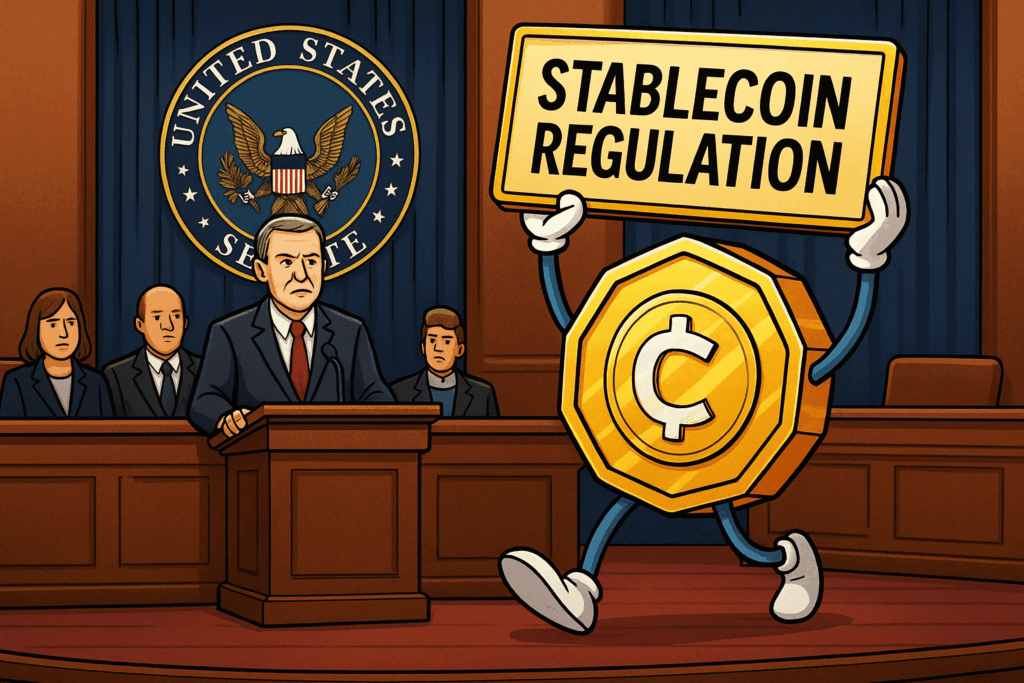The U.S. Senate has taken a significant step toward regulating the stablecoin market, advancing the GENIUS Act following a 66–32 procedural vote held on May 19. The bill, formally known as the Guiding and Establishing National Innovation for US Stablecoins Act, will now proceed to a full debate on the Senate floor.
Initially stalled by Democratic opposition earlier in May due to concerns over former President Donald Trump’s crypto-related ventures, the bill gained momentum after several senators—Mark Warner, Adam Schiff, and Ruben Gallego—changed their votes to support closure. Their shift enabled the legislative process to continue and opened the door to broader deliberations.
Republican Senator Cynthia Lummis, one of the bill’s principal supporters, expressed optimism about its timeline. Speaking on May 15, she said that targeting a final vote by Memorial Day, May 26, is a realistic goal.
Newsletter
Get weekly updates on the newest crypto stories, case studies and tips right in your mailbox.
Concerns over Trump’s crypto ties
The GENIUS Act faced resistance when Democratic lawmakers blocked its progress on May 8, raising alarms about potential conflicts of interest stemming from Trump’s expanding influence in the cryptocurrency space. Among their worries were the bill’s perceived gaps in Anti-Money Laundering (AML) provisions.
Senator Mark Warner acknowledged these ethical concerns but emphasized the broader urgency of regulation. “We cannot allow that corruption to blind us to the broader reality: blockchain technology is here to stay. If American lawmakers don’t shape it, others will — and not in ways that serve our interests or democratic values,” Warner stated.
Warren slams bill over Trump crypto gains
Senator Elizabeth Warren, a vocal critic of the crypto industry, was among the bill’s staunchest opponents. She argued that the GENIUS Act does not go far enough to curb what she described as Trump’s “crypto corruption.” Citing CoinGecko data, Warren noted the rapid growth of USD1, a stablecoin linked to Trump, which has already become the seventh-largest by market value.
“Trump and his family have already pocketed hundreds of millions of dollars from his crypto ventures,” Warren said. “They stand to make hundreds of millions more from his stablecoin, USD1, if this bill passes.”
The GENIUS Act, introduced by Senator Bill Hagerty on February 4, aims to establish a comprehensive framework for the nearly $250 billion stablecoin market, currently dominated by Tether’s USDT and Circle’s USDC. The bill mandates that all stablecoins be fully backed and subject to regular security audits. It also requires issuers to receive approval from either federal or state regulators and stipulates that only licensed entities can issue stablecoins. Moreover, it places restrictions on algorithmic stablecoins, which have drawn scrutiny in past market disruptions.
The current version of the bill builds on a prior draft introduced by former Representative Patrick McHenry, known as the Clarity for Payment Stablecoins Act. That draft, submitted in October, laid foundational elements for stablecoin regulation, many of which have now been integrated into the GENIUS Act.













